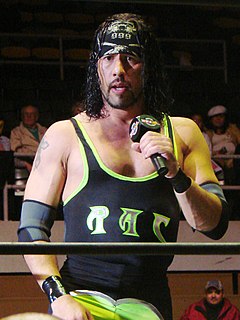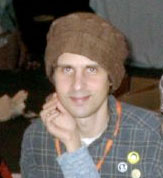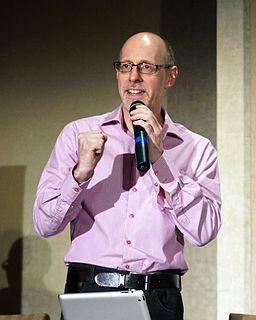A Quote by Wong Kar-wai
Most of my films deal with people who are stuck in certain routines and habits that don't make them happy. They want to change, but they need something to push them. I think it's mostly love that causes them to break their routines and move on.
Related Quotes
Change is difficult and it takes time. It is hard for people to change their own behavior, much less that of others. Change programs normally address attitudes, ideas, and rewards. But the behaviors of people in organizations are also strongly shaped by habits, routines, and social norms. Real change requires new power relationships, new work routines and new habits, not just intent.
We just get comfortable in our routines, and that's how it worked before, but now you can see wrestling from around the world and all the promotions, and everyone has something online you could see. And many years ago, you could do these routines, and they weren't routines to the fans because they didn't see them as much.
I think it's one of the nicest privileges as an actor is to know that you can move people in one moment, make them think about their lives, or make them laugh or make them cry or make them understand something. Or just make them feel something because I think so many of us, including myself, spend too much time not feeling enough, you know?
Through my life and my experience, I believe getting "positive mental attitude" is true. Your brain has certain pathways in it, and if you feed those pathways with certain types of thoughts, the blood goes to those neurons and nourishes them, and they grow and develop. That's how you build habits. Physically, I think that's how your brain works. If you have certain habits that are negative and causing you problems that you want to change them, you can actually change the blood flow and stuff in your brain by thinking a different way.
If you want to liberate someone, love them.Not be in love with them - that's dangerous. If you're in love with your children, you're in their lives all the time. Leave them alone! Let them grow and make some mistakes. Tell them, "You can come home. My arms are here - and my mouth is too." When you really love them, you don't want to possess them. You don't say, "I love you and I want you here with me."
Making fiction for children, making books for children, isn't something you do for money. It's something you do because what children read and learn and see and take in changes them and forms them, and they make the future. They make the world we're going to wind up in, the world that will be here when we're gone. Which sounds preachy (and is more than you need for a quotebyte) but it's true. I want to tell kids important things, and I want them to love stories and love reading and love finding things out. I want them to be brave and wise. So I write for them.
It's difficult because you can't generalise about these things. But in essence, you deal with children as simply as you deal with actors - you have to show a certain sort of respect. You deal with them lovingly and protect them, but if you protect them enough then they're open to engage with what you want to do with them.
Once, a French journalist told me that all my films are the same. I said, 'Excuse me? I work hard to make them different.' What she meant was that in my films there is a character that faces insurmountable odds, and they overcome them. But I thought that might be true, but you need certain factors for drama, and you need to overcome them.





































